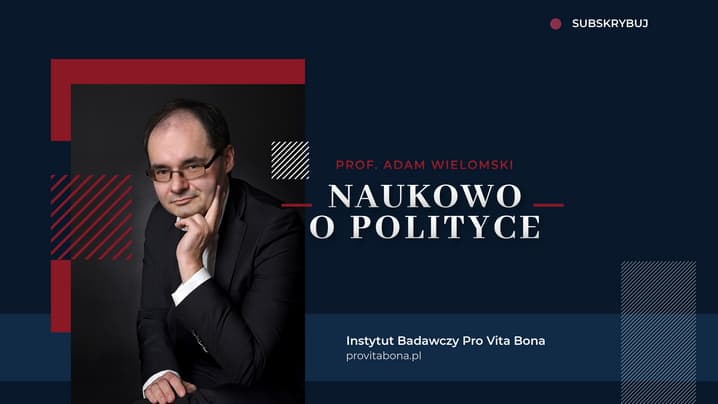Despite the fact that there are over a million persons of Polish descent in Canada (according to the Canada Census) the community appears to have had very little impact on the political, social, and cultural life of Canada as a whole.
During May 10 — May 13, 2012, I had attended the conference “Creative Writing in the 21st Century: Research and Practice” at Humber College, Lakeshore Campus in Toronto (in Etobicoke, a western suburb of Toronto). Located among many acres of green space near Lake Ontario, that campus is especially lovely in the late spring/early summer. Most of the sessions of the conference took place in a large, brand new building, that has just been raised on the grounds of what was previously (many years ago) a major psychiatric facility. Several, very solidly built, red-brick “cottages” on the site, have also been refurbished into school buildings. The campus also includes an old teacher’s college building towards the west, to which new additions and a large students’ residence complex, have been added.
The conference was organized by the Canadian Creative Writers and Writing Programs (CCWWP – or “quip”). One of the sessions was entitled “Writing Eastern Europe: Invisibility, Myths, and the Canadian Perspective”. The three panelists were Andrew J. Borkowski, author of the short story collection Copernicus Avenue (a slightly fictionalized version of Roncesvalles Avenue in west-end Toronto) (which won the 2012 Toronto Book Award); Eva Stachniak, the author of (most recently) a work of historical fiction about Catherine the Great of Russia that is charting on the bestseller lists; and Antanas Sileika, the author of (among other works) the novel Underground (about the anti-Soviet resistance in Lithuania), who was the long-time Director of the Humber School for Writers, and who was one of the main organizers of the conference. All three authors presented highly insightful ideas about Eastern Europeans and their place in Canada. One thing noted was the great sense of tragedy in that part of Europe – where “death was ever present”. And death in fact extended to virtually all groups in those societies. Another point was that most Canadians knew virtually nothing about Eastern Europe. A third major point was that Eastern Europeans had produced very few writers in the general tapestry of “CanLit”. While South Asian and East Asian writing had definitely emerged in Canada, where was the writing by persons of Eastern European descent? My long-standing notions about the lack of saliency of Polish-Canadians in Canada were certainly confirmed by the esteemed panelists.
(Although some Poles prefer to say they are from Central Europe, or East-Central Europe, the term Eastern Europe has persisted, especially in some Canadian milieu.)
Professor Eva Stachniak is currently probably the most prominent writer of Polish descent in Canada – having achieved considerable success in “CanLit” – and now more generally also in America and Britain. She arrived in Canada in 1981. She completed her doctoral thesis in English literature on Stefan Themerson at McGill in 1988, on the positive philosophy of exile in Stefan Themerson’s fiction. (Themerson wrote mostly in English after settling in Britain after World War II.) Stachniak published her first English-language short story, “Marble Heroes”, in the Maritimes-based Canadian literary magazine, Antigonish Review, in 1994.
Her first published novel, Necessary Lies (2000) won the Amazon.com/Books in Canada First Novel Award. It was a rather angst-filled look at the heritage of Wroclaw.
Stachniak’s second novel, Garden of Venus (2005) is about the extraordinary eighteenth-century woman who, from humble Greek origins, became Countess Sophie Potocka. This is one of those amazing real-life stories that would seem improbable if it were fiction. The book has appeared in translation in a number of languages, including Polish.
Stachniak’s more recent book is The Winter Palace (2012) – a vivid portrait of Catherine the Great – which has received high accolades, and has been charting on the bestseller lists. Professor Stachniak spent many years of research to get those historical details, just right. Her second novel on Catherine the Great, The Empress of the Night, was released in 2014.
While stylistically brilliant and superbly researched, one could say that Eva Stachniak’s writing is not too heavily “engaged” in the current-day Polish cultural struggle. The infelicitous context today is of tendencies ever more hostile to traditional Polish understandings – even in Poland itself – let alone in Western Europe and North America. Could it be hoped that this might create a sense of urgency among at least some Polish writers? I also do realize that if Professor Stachniak were to become too heavily “engaged” – she would likely become less welcome in “CanLit”. It should be noted that some of the English-language interviews she has conducted (and subsequently published) – for example, the one with Andrew J. Borkowski – have been tremendously insightful and helpful.
Professor Stachniak had difficulty publishing her historical novel about the exiled Polish Romantic poet Zygmunt Krasinski (a contemporary of Mickiewicz, Slowacki, and Norwid) and two women in his life (Delfina Potocka and Eliza Krasinska), which she originally wrote in English. So, she was able to have it translated into Polish, and it appeared with relative success in Poland, under the title “Dysonans” (Dissonance) (2009). I think, however, that the portrait of Krasinski in the novel, is not too flattering.
Eva Stachniak has received a Turzanski Foundation literary award, for the years 2011-2012, but, unfortunately for Polish-Canadian writing endeavours, those were (as of Spring 2015) actually the last years in which the awards have been given. After my query, the President of the Turzanski Foundation informed me in an e-mail in the spring of 2015, that there is currently a hiatus in the giving out of the awards. I would guess this is because of financial difficulties at the Foundation.
While attending the conference in May 2012, I met (among others) the noted research scientist Beverly Akerman, the author of The Meaning of Children. I told her about my unpublished science fiction, alternative-history short story (titled “Blueprint Retro”) whose premise was “Hitler thwarted earlier”. As a trained historian, I was able to carefully and plausibly construct that alternative-history. We noted in conversation that that historical outcome would have been good for Poland – and not just for Poland.
That short story had earned me an Honours grade (equivalent to 90% or more), in my course with fantasy and science fiction author Caitlin Sweet, as part of my Certificate in Creative Writing at the University of Toronto (School of Continuing Studies). Although I have achieved extensive publication in journalism and scholarly writing, I have always had the ambition to professionally publish some science fiction, fantasy, and historical fiction.
I had submitted a shortened version of that science fiction story to the upcoming anthology of Polish-Canadian short fiction (from Guernica Editions), but it was unfortunately turned down.
(The anthology has appeared in 2017.)
Now that immigration from Poland has shrunk to a trickle, the Polish-Canadian community is looking at becoming an ever-thinner slice of a Canadian population, where so-called visible minorities are likely to become an ever-larger percentage. The fact is that, for the vast majority of persons of Polish descent, the “affect” of their putative identity is far, far less, than for those other groups. An increase in the number of Polish-Canadian authors in “CanLit” – or in English-language literature in general – could perhaps alter that somewhat.
Mark Wegierski



